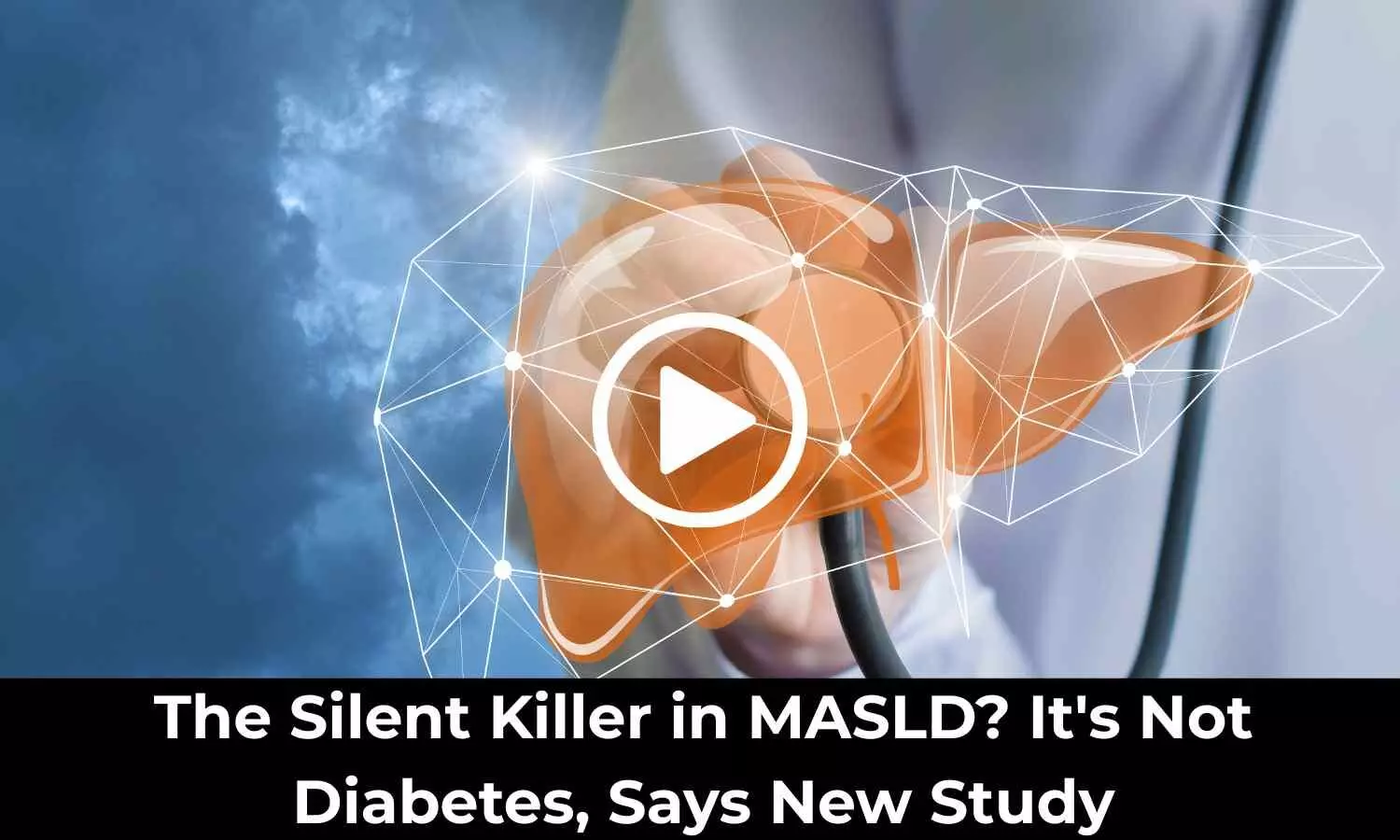The Silent Killer in MASLD? It's Not Diabetes, Says New Study
- byDoctor News Daily Team
- 20 September, 2025
- 0 Comments
- 0 Mins

A new study published in Clinical Gastroenterology and Hepatology has identified high blood pressure,Type 2 diabetesor pre-diabetes, and low HDL as the deadliest cardiometabolic risk factors for patients with metabolic dysfunction-associated steatotic liver disease (MASLD). MASLD occurs when excess fat accumulates in the liver in conjunction with at least one of five cardiometabolic risk factors:obesity, Type 2 diabetes, high blood pressure, high blood sugar, and low HDL cholesterol. These conditions impact either cardiovascular or metabolic health and significantly elevate the risk of complications such as advancedliver, kidney, and heart disease. To better understand which of these risk factors most strongly predict mortality in MASLD patients, researchers analyzed data from the U.S. National Health and Nutrition Examination Survey (NHANES), spanning from 1988 to 2018. Out of more than 134,000 participants aged 20 and older, about 21,000 met the criteria for MASLD. Researchers tracked all-cause mortality rates in relation to individual risk factors. The study found that high blood pressure increased the risk of death by 40%, diabetes or pre-diabetes by 25%, and low HDL by 15%. Dr. Matthew Dukewich, lead author of the study, noted, “Until now, it was commonly thought that diabetes was the most pressing health problem for MASLD patients, which is a key insight.” Obesity, while the most common risk factor, also showed increased mortality risk depending on body mass index (BMI). Moreover, the study found that each additional cardiometabolic risk factor raised the risk of death by 15%. Looking forward, the authors plan to explore the influence of genetics, diet, and alcohol use on MASLD outcomes. Reference:Differential Effects of Cardiometabolic Risk Factors on All-Cause Mortality in US Adults with Metabolic Dysfunction-Associated Steatotic Liver Disease (MASLD), Dukewich, Matthew et al. Clinical Gastroenterology and Hepatology, Volume 0, Issue 0
Disclaimer: This website is designed for healthcare professionals and serves solely for informational purposes.
The content provided should not be interpreted as medical advice, diagnosis, treatment recommendations, prescriptions, or endorsements of specific medical practices. It is not a replacement for professional medical consultation or the expertise of a licensed healthcare provider.
Given the ever-evolving nature of medical science, we strive to keep our information accurate and up to date. However, we do not guarantee the completeness or accuracy of the content.
If you come across any inconsistencies, please reach out to us at
admin@doctornewsdaily.com.
We do not support or endorse medical opinions, treatments, or recommendations that contradict the advice of qualified healthcare professionals.
By using this website, you agree to our
Terms of Use,
Privacy Policy, and
Advertisement Policy.
For further details, please review our
Full Disclaimer.
Recent News
Merck Keytruda wins European Commission nod for lo...
- 30 October, 2025
UP NEET 2025 round 3 allotment results postponed
- 30 October, 2025
Achin Gupta to succeed Umang Vohra as Cipla MD, GC...
- 30 October, 2025
Mumbai shocker: KEM Hospital doctor stabbed by col...
- 30 October, 2025
Daily Newsletter
Get all the top stories from Blogs to keep track.


0 Comments
Post a comment
No comments yet. Be the first to comment!